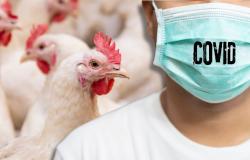Probably five years ago a dengue epidemic in Latin America would have found space in Italian newspapers only briefly, on the foreign pages. Today, however, it conquers the front pages of newspapers, the top floors of Internet sites, a place on the news at rush hour. It’s difficult not to wonder if this happens because we have changedThat, burned by the traumatic experience of Covid-19when it comes to news on the subject of infectious diseases, we have developed extremely sensitive antennas. Or because denguewhich has been known in Latin America for a century, can actually represent a risk for us here too. We turned the question over to the teacher Gloria Taliani, professor of infectious and tropical diseases at the Sapienza University of Rome.
LITTLE DICTIONARY BEFORE YOU BEGIN
According to the definition of EpiCentro, the epidemiology site of the Istituto Superiore di Sanità, an infectious disease is epidemic when a sick person infects more than one person and the number of cases of the disease increases rapidly in a short time. The infection therefore spreads in a population made up of a sufficient number of susceptible subjects. However, it is considered endemic when the responsible agent is permanently present and circulates in the population, manifesting itself with a more or less high number of cases but uniformly distributed over time. While the sporadic case is one that occurs in a population in which a certain disease is not permanently present.
After experiencing Covid, should we now worry about dengue?
“Definitely no. Unlike Covid, which is transmitted by air, so you just need to be close to someone who has it to risk becoming infected, dengue has a much more complicated transmission mechanism: it needs a “vector”, i.e. a medium that transport it, in this case the aedes aegypti mosquito. In Italy the tiger mosquito is able to transport it, although with less effectiveness. But for the mosquito to be able to carry the virus around from one person to another through the bite, it is necessary that the virus in the area is endemic, that is, that there are many people with the virus in their blood, which is not the case here.”
So why is it so newsworthy now?
«Partly because the Covid experience has marked us and made us attentive to everything that emerges in terms of infectious disease, partly, I would say above all, because now finally there is an effective vaccine for dengue that protects against the associated risks to reinfections, which are the most dangerous thing, and it is good that the existence of this vaccine is known.”
Who is the vaccine recommended for?
«To those traveling in areas at risk of dengue. The risk is more intense if you are young, but it does not begin before 5-6 years of age and increases if you stay for a long time where the disease circulates. At this moment the vaccine is highly recommended for those who need to go to Brazil: it is administered starting from 5-6 years of age, optimal protection is obtained with two doses three months apart, but if there is no time even one dose two weeks before leaving it has a certain effectiveness that increases over time.”
Why has the disease now gone from endemic to epidemic in Latin America?
«The epidemic in Brazil can be explained by the contingent fact that it is now very hot and very humid there: the ideal conditions for the mosquito cycle to shorten and for many more larvae to form in the same period of time. This means that the great availability of vectors in an endemic disease environment makes transmission very effective, potentially at almost every bite.”
What are the indigenous Italian cases that have been talked about?
«There are cases – but there have always been – in which someone has caught dengue without having traveled to areas where the disease circulates, infected by a mosquito that first came into contact with the person who brought it from a trip. In 2023 there were 68 (out of a population of 59.11 million inhabitants, ed.), a little more concentrated in the Po Valley, towards the Po delta, where there are many mosquitoes. A completely negligible risk at an individual level.”
How is dengue recognized compared to other infections that cause fever?
«Many viruses initially give similar symptoms, it is impossible to distinguish Covid from flu without a swab. Dengue, however, has a typical characteristic of intense pain in the muscles and bones, so it is quite easy to identify. Recognizing it does not change much for the individual who takes it given that it is treated with antipyretics and painkillers like the flu and given that it does not entail particular risks with the first infection, while it becomes more critical with the second. However, it is important to identify it at a public health level, in the sense that if a doctor recognizes it and reports it, prompt action can be taken to disinfest the area from mosquitoes to prevent it from being transmitted to others and even very rare cases can be monitored to immediately intercept any outbreaks”.
The climate changes here too, there are mosquitoes here too. Should we be careful?
«I would say that protecting yourself from mosquitoes is always a good thing because being bitten is annoying, but we don’t have to worry about dengue because transmission is extremely unlikely. It’s true, the climate is changing here too, with summer we will have humid heat in some areas, even if different from that of Brazil because we don’t have such extensive forests, but this doesn’t mean we will have dengue.”




